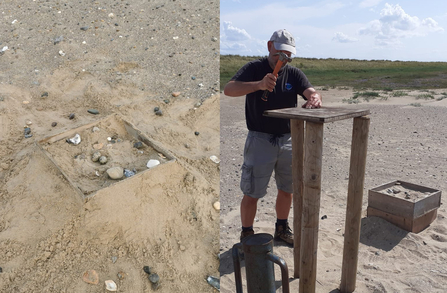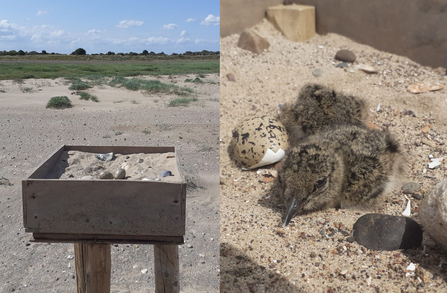While oystercatchers are a common sight on some stretches of the UK coast - and their noisy peeping call a regular soundtrack - they have amber status on the endangered Red List and up until this year no oystercatcher chicks had hatched in the shorebird sanctuary at Gibraltar Point since 2015.
Wardens at the National Nature Reserve were pleased to see a nest with two eggs early in the summer but concerned that the location the birds had chosen would leave it very vulnerable. A predicted high tide sequence would have seen it flooded and destroyed without intervention. Working against the clock, they boxed the nest so it was possible to move it, then double stacked it to get the parents used to having to fly onto it rather than walk in.


